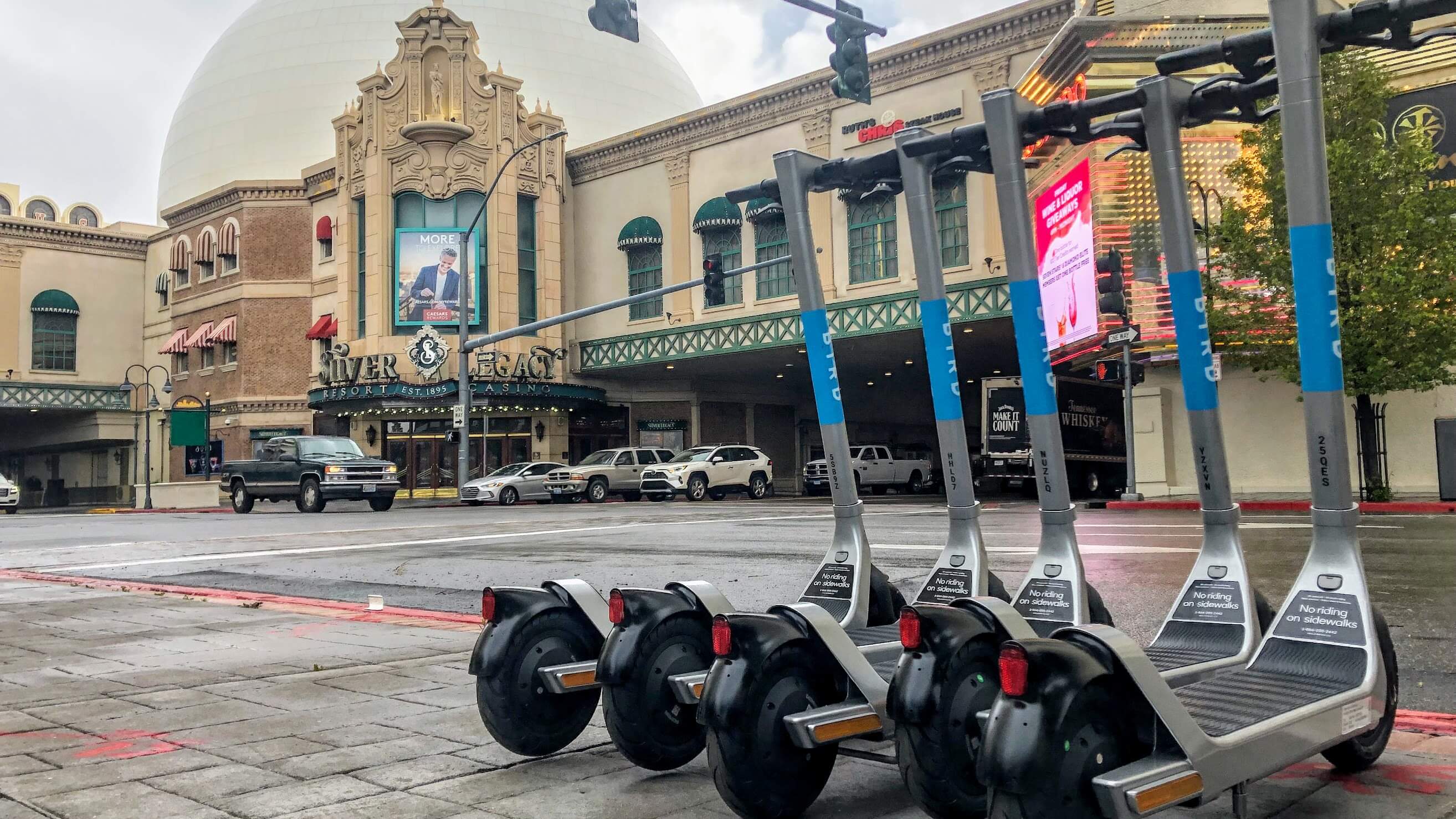Editor's note: This is an opinion piece from a writer outside our organization and does not necessarily reflect the perspective of Streetsblog USA or its editors.
The Biden administration's recent announcement of new standards for building out a national electric vehicle charging network — to the tune of $7.5 billion — is a reminder of its leaders' lack of understanding of the potential of micro-electric transportation. This myopia is holding our country back from the widespread electrification mode shift we need to combat climate change, and it's also leaving the economically disadvantaged behind. Instead of considering alternatives to expensive electric or hybrid cars, like e-scooters or e-bikes, the Administration remains focused on antiquated, car-centric approaches and policies that have plagued our communities and planet for over a century.
Over 45 percent of vehicle trips are three miles or less. That’s around 100 billion trips per year in the United States alone, most of which are car trips that could be replaced by smaller and more affordable means of transport.
Micro EVs are perhaps the most critical piece in that car replacement puzzle, and their greater efficiency has already been confirmed by new research. Two-and-three wheeled electric vehicles are already the largest driver of reduced oil demand, cutting global oil demand by 1 million barrels per day in 2021 alone.
Despite the outsized environmental impact of micro EVs, current laws attempt to lower the high cost of purchasing an electric car by providing a rebate of up to $7,500, with zero federal subsidies for micro EVs. This approach fails to achieve a competitive price point for most electric cars while ignoring a critical opportunity for an increased shift toward micro EVs.
In place of a $7,500 rebate for one car, we could provide many more e-scooters or e-bikes for free, either through subsidies for shared usage or individual ownership. Not only would this help combat the climate crisis and America's reliance on cars, but it could also lower transportation costs for millions of low and middle-income Americans in this inflationary environment.
For solutions, Biden and his administration can look to cities and states that are left filling the e-mobility vacuum to combat climate change on their own. For example, California’s statewide e-bike rebate program totaling $10 million, set to go live this month, expects to help 10,000 Californians access clean, affordable transportation. In May, Connecticut also signed an e-bike rebate bill into law. At the local level, a number of cities, ranging from Denver to Monterey Bay to Austin, offer e-bike incentives to residents.
E-mobility initiatives and incentives at the state and local levels are gradually paving the way for the adoption of more clean transportation options, but the federal government has the power, scale, and capacity to shift America away from car-centrism much faster. While the Biden administration’s Build Back Better plan proposed a limited e-bike rebate and incentives for bicycle commuting, that bill has stalled. The Infrastructure Investment and Jobs Act contains some funding for shared micromobility infrastructure, but it only represents a tiny fraction of the funds allocated to car infrastructure.
As a result, communities in the US are still compensating for their lack of micro EV options by creating more parking spaces for cars, much as they were 100 years ago. The additional cost to developers to build car parking drives up the cost of housing, exacerbating the housing affordability crisis. Building parking infrastructure to charge electric cars will add more cost and wasted space. A typical parking spot is nine by 18 feet, enough space for 10 e-scooters or five e-bikes to fit easily. In this country of 330 million people, we have over a billion of these dedicated car parking spaces. As a result of our national car obsession, an average city in the US dedicates about half of its surface area to pavement, pretty much all of which is reserved for cars.
Imagine how much more livable our cities would be if just half of that paved area — i.e., 25% of the typical US city — were repurposed for parks, affordable housing, or pedestrian plazas with a few interspersed micromobility lanes. If we pivot funding away from cars and toward infrastructure prioritizing e-mobility programs, we would measurably reduce the cost of living, improve air quality, and help to tackle climate change head-on, a rare win-win-win for Americans. Despite what you might read in the news, this is not a controversial issue: 74% of voters in the US already support shared e-scooters and e-bikes.
The micro EV industry is just getting started — in the near future, we’ll see new modes that are appropriate for even more people and also more affordable, smaller, safer, and greener still. Packages, policies, regulations, and resources that don’t think beyond car hegemony to acknowledge the benefits of micromobility aren't built to serve the American people and address the shared climate crisis we face.
Shane Torchiana is President at Bird, an electric vehicle sharing company providing e-scooters and e-bikes to riders in over 400 cities globally. Before joining Bird in 2018, he spent eight years at The Boston Consulting Group (BCG) where he led engagements in data and analytics, transformation, and strategy. Prior to BCG he worked in global macro investing at Morgan Stanley. He holds an MBA from Columbia Business School and a Master of Finance from MIT Sloan.







